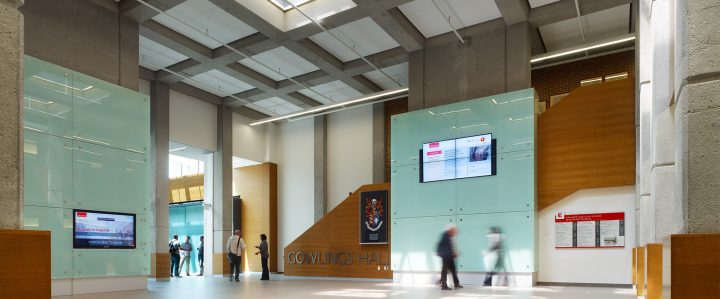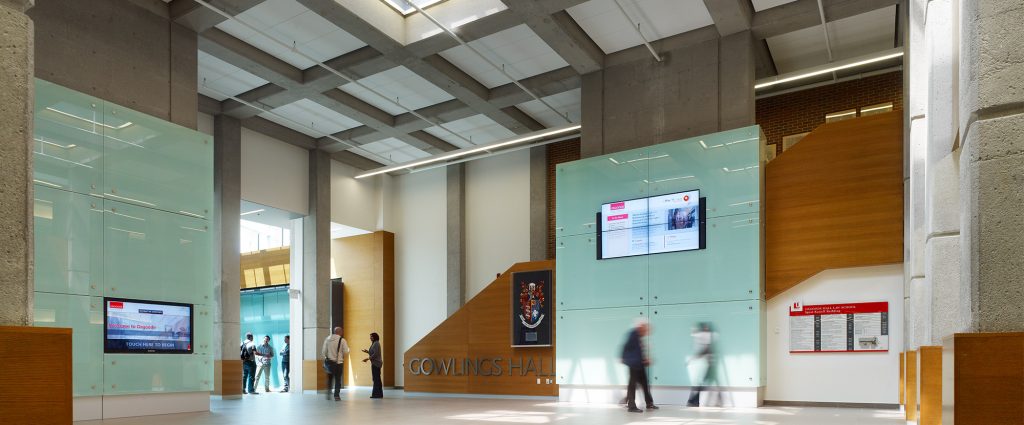

Each year of law school is so vastly different from the one that precedes it. I would even go as far as to say that each semester takes on a life of its own. Amidst the chaos, it is easy to wonder whether your particular experience is the common one; you may wonder if everyone found 1L as difficult as you did, or you may be curious to know if you’re the only 3L who still hasn’t ordered their textbooks. This article is for all of you, to hopefully provide a little comfort and maybe even a little guidance to deal with whatever you’re going through as we begin the winter semester.
To the 3Ls: First of all, congratulations—the end is officially in sight for the first generation of COVID law students. As we move to the finish line, I can’t help but think of what I learned in the past three tumultuous years. I learned to be savvy and resourceful on my own—especially during the periods of isolation and lockdowns. In that same vein, I learned how to build and rely on a fully digital community. Yet, my biggest takeaway from school is best summarized by the word “blasé”—meaning, “unimpressed or indifferent to something because one has experienced or seen it so often before.” After everything that was thrown our way over the past three years, I can’t help but think I developed a thicker skin when it comes to adversity. Whether it’s novel fact patterns or COVID-related lockdowns, few things surprise me now. Because of that, I feel confident dealing with whatever the legal world throws at me in the next few years.
Moreover, I truly do wish nothing but the best for each and every one of you, whether we’re old friends or have never met. We will always be the first generation of law students to deal with COVID-19, meaning we will always have this shared experience. Few others will experience something similar—at least not to the extent that we did. Knowing how wild these last three years have been, I have a deep and incredible respect for all of you, coupled with the belief that you will all become great lawyers.
But back to the point: Congratulations to all of you—we did it, despite the less-than-ideal circumstances.
To the 2Ls: In my opinion, 2L is the year of the greatest uncertainty. Some people get locked into their first-choice positions through the 2L recruit, and some spend the entire semester trying to find any sort of legal work. Some students use the connections they made from 1L as a springboard into Osgoode extracurricular involvement, others aim to minimize any extra work on top of the already-treacherous law school workload. Some of you know exactly what you want to do, and others have no idea.
Amidst my uncertain 2L year, I, inspired by Buddhism, discovered the value of letting go, whether it be of attachments, or preconceived ideas. For me, 2L was ripe with expectations: expectations of getting a job in the 2L recruit, expectations of improving grades, and the general expectations of becoming a young lawyer, among other things. I tried my best to control these things and reach these expectations, but in doing so I realized I was being too hard on myself.
So, I let go. I let go of my expectations for myself. I gave myself a break. I focused on what I came to Osgoode to do: Learn how to practice the law. I opened myself up. I recalibrated my goals and lowered my expectations. I responded to things as they came to me, instead of rigorously attempting to dictate outcomes that were simply beyond my control. As a result, I was less stressed, felt more in control, and I believe my focus improved.
If there is one thing I could tell the 2Ls, it would be to try to let go of the things to which you may have inadvertently attached yourself. You’ll be amazed at how different life feels when you allow it to come to you and take things as they come, instead of trying to control it. I know it’s easier said than done, and I know that practically implementing the idea of “letting go” of expectations is a daunting and incredibly difficult task—especially for a law student—but I promise it pays dividends.
To the 1Ls: I hope the beginnings of your legal careers have been everything you expected, though I doubt it has. Regardless, 1L is where you develop two important skills: community-building and work ethic. Building a community at Osgoode is a special and unique experience, not to say it’s necessarily easy. This school contains people from all walks of life. There is a strong chance you will meet a lot of people you don’t like, and there is an equal chance you will meet lifelong friends. Your study group may be comprised of a former biology student, a former political aide or staffer, and a mother of a three-year-old.
Never write anyone off—every person you meet has something to offer. The biology student may send you perfectly detailed notes for the class you missed, the former political aide may be a star at presenting material, and the mother may be masterful at scheduling and organizing group work. More importantly, these are the people you will commiserate with for the rest of the semester. These are the people sharing your immediate experience. Connect with them, respect them, and help them—you’ll thank me when it’s time to write your Legal Process II exam.
1L is also where you begin to develop your work ethic. Sometimes deadlines will be pressing, and when those deadlines come up, you may have to work harder than you ever have. However—and somewhat paradoxically—don’t work too hard. Do your work, yes, and hit your deadlines, but don’t miss your brother’s wedding to finish reading notes. At Osgoode, and later on in practice, you will certainly need to work incredibly hard to hit tight deadlines. But work is not all there is: Us students must strike a delicate balance. You have friends, family (maybe even a pet), hobbies, and interests, and these are the things that colour your life. Law is a career and a profession, but no matter what someone tells you, it does not have to be your entire life. Remember the things that make your eyes light up and do those things often, and remember that life’s short: Do your work, but don’t put yourself in a position where you forget everything else that makes you human.
